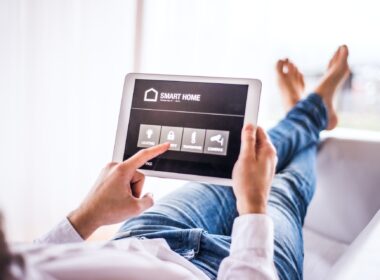Starting a family for the first time is as enjoyable as it is scary, exciting, and fun. For most, it’s one of the biggest milestones in life. While raising children and making memories with them, it’s also important to be prepared for any unforeseen circumstances. As a small family, you may not have as many resources as larger families or communities do. But with proper planning and preparation, you can ensure the safety and well-being of your loved ones in case of an emergency. In this article, we’ll go through some basics any-sized family can take on to better prepare for what’s ahead.
Understanding Emergency Preparedness
Emergency preparedness refers to being ready for unexpected situations that might disrupt daily routines and affect the community. These emergencies can range from natural disasters like hurricanes, earthquakes, and floods to man-made accidents or incidents such as power outages or chemical spills. As a small family, it’s crucial to have a plan in place for when emergencies strike. This plan should include steps on how to stay safe, access basic needs such as food and water, and communicate with other family members or emergency services.
Handling emergencies with little kids or pets can add an extra layer of challenge. Don’t be afraid to involve children in the emergency preparedness process and teach them about potential hazards and how to stay safe. This can include practicing evacuation drills, teaching them how to call 911 or other emergency contacts, and having a designated meeting spot in case of separation.
When it comes to pets, make sure they have identification tags and are included in your family’s emergency plan. Have a pet emergency kit ready with food, water, medications, and any necessary supplies. Consider microchipping your pets for added security.
Creating an Emergency Kit
Having an emergency kit ready at all times can come in handy during unexpected situations. This kit can include essential items like non-perishable food, water, first aid supplies, flashlights, batteries, and any necessary medications. You may want to consider keeping spare fuel on-hand as well, such as some delivered by Yavapai Bottle Gas. As a small family, you may want to consider putting together individual kits for each family member that includes their specific needs and comfort items. Don’t forget to regularly check and update the contents of your emergency kit.
Gathering Resources and Support
As a small family, be sure to know your resources and have support systems in place. This can include knowing your neighbors and their contact information, staying informed about local emergency services, and connecting with community organizations that offer assistance during emergencies. It’s also crucial to have proper insurance coverage for your home and belongings. This can provide financial protection in case of any damages or losses due to an emergency.
Knowing Your Evacuation Routes
In case of a natural disaster or other emergencies, you’ll want to know the evacuation routes in your area. As a small family, you may have different needs from larger families, so it’s crucial to plan accordingly. For example, if you have young children or elderly family members, you may need to factor in extra time and support for evacuation.
No matter what, ensure that every member of your family knows the designated meeting spot in case of separation during an emergency. This can be a specific location within your neighborhood or a nearby community center, depending on the situation. Make sure to practice this plan regularly and discuss any changes or updates as necessary. Having a well-prepared evacuation plan ensures that no one gets left behind and everyone stays safe during emergencies.
Staying Informed
Staying informed is key during emergencies. Make sure to have a battery-powered radio or access to emergency alerts on your phone. You can also sign up for local community alert systems that will notify you of any potential dangers in your area. Be aware of the potential hazards in your community and stay updated on any changes. It’s also a good idea to keep emergency contact numbers handy and teach children how to use them.
Establishing a Communication Plan
Having a communication plan in place is essential for any family, especially during emergencies when communication networks may be disrupted. As a small family, you can designate an out-of-state relative or friend as a point of contact to relay information between family members. It’s also a good idea to have backup methods of communication such as walkie-talkies or designated meeting places.
Keeping Up Good Morale
Last but not least, it’s important to maintain good morale during an emergency. As a small family, you may be in closer quarters than usual and facing added stress. Remember to take breaks and have fun activities or games ready for the kids. This can also be a time to bond and create positive memories as a family.
As a small family, being prepared for emergencies can bring peace of mind and ensure the safety and well-being of your loved ones. By understanding emergency preparedness, creating an emergency kit, knowing evacuation routes, staying informed, and establishing a communication plan, you can better prepare for any unexpected situations that may arise. Remember to regularly review and update your emergency plans to ensure they are up to date and effective. Stay safe and take care of each other out there!









